Download Files
Patient Testimonies
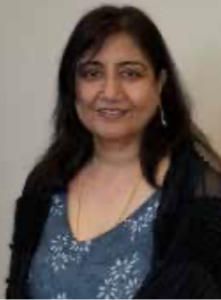 Swaroopa
Swaroopa
52 Years Old
I was 28 years old when I received my CKD diagnosis. Always being health conscious, I was in denial at first. Then sad, angry, why me?… then acceptance. Soon after that, I decided that if I had to do this a positive attitude is key.
I tried to follow everything the doctors told me to do to keep my kidney function up. I learned that diet played a very important part so I followed to it to the word. Giving up my favorite foods wasn’t easy. But sticking to the renal diet helped me regulate my fluids so that I could have a better life.
CKD taught me to appreciate every day of my life and not take anything for granted. Going through peritoneal dialysis and hemodialysis has made me a very strong and patient person. I want to live my life to the fullest with lots of enthusiasm. My transplant in 1997 has given me a second chance to live. I know it may seem difficult to follow the regimen that will be given to you but it is extremely important to keep yourself healthy and energetic. You will have days that leave you feeling helpless and tired. Always remember there is a light at the end of the tunnel, and by following the rules, there will be better times ahead. Most importantly learn to take things in stride and NEVER give up hope.
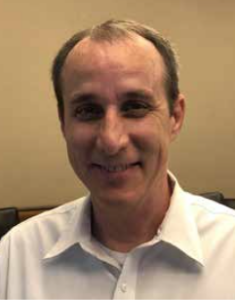 John
John
56 Years Old, CKD Stage 4
I was troubled by my CKD diagnosis at first. Then decided to take charge and started researching my condition.
I took the CKD education classes in 2014. I learned that through diet, exercise and hydration I could improve my kidney function. I focused on my diet and decreased my work load so that the stress in my life was very minimal.
Because of the lifestyles changes I was able to make, CKD has had little effect on my life. Preventive care and working in conjunction with my doctors has been very impactful in slowing down my condition.
It has been four years since my CKD diagnosis. My kidney function has stabilized. I can’t stress to you enough to get involved. Make lifestyle changes, experiment with your diet (everyone is different) and exercise. By doing these things you can, not only, slow down your loss of function but you can improve it as well.
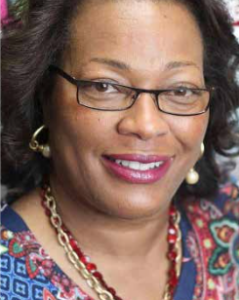 Barbara
Barbara
58 Years Old, Peritoneal Dialysis
I was diagnosed with CKD right after my grandfather had passed away almost 20 years ago. I was shocked it was my kidneys. My GFR % was up and down for several reasons. I had been taking BC powder and Aleve to relieve pain from other symptoms I was having at the time. Once I was told that was the part of the problem, I was able to make some positive changes that helped protect my kidneys. I stopped taking the Aleve and BC powders and worked with my health care team to decrease the amount of protein I was losing through my kidneys. I was started on meds that would protect my kidneys and limited the protein in my diet. I got regular check-ups and if problems arose, we worked together to address them. I was able to control my CKD for almost 18 years.
I had chosen to start peritoneal dialysis (PD) if ever needed. In 2016, I wasn’t feeling as well and my eGFR was less than 10%. I knew it was time to start dialysis. I got a PD catheter placed and then my family and I started PD training at the dialysis center. I do automated peritoneal dialysis (APD) at night while I sleep.
My husband and I are missionaries. I use to travel internationally with him. The hardest part for me is I no longer feel comfortable traveling that far from home. I miss going to other countries with him but I stay busy doing volunteer and ministry work almost daily.
Your CKD diagnosis is not the end of your life. I maintained my renal function for over 18 years before going on dialysis. I have a good life and I am thankful for every minute of it.
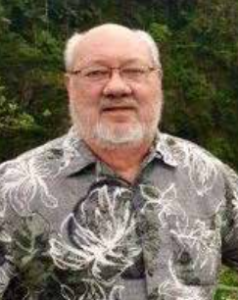 Gene
Gene
75 Years Old, CKD Stage 3
Eight years ago I was diagnosed with CKD during a routine checkup. It was caused by diabetes which I had kept fairly well controlled. My eGFR was in the mid 40s. I was told that my CKD was at stage 3. A few years later I was diagnosed with a kidney stone when my eGFR suddenly dropped to the mid 30s. I had the kidney stone removed and my eGFR went back up to the mid 40s. The following year I had another stone and I decided then that I had better start taking better care of my kidneys if I didn’t want to be on dialysis.
My doctor had been telling me to decrease my salt and protein which are two of my most favorite things.
I cut back drastically on both when I decided that my kidneys were my two “NEW” favorite things. I am happy to say that my eGFR not only quit dropping but improved! It has remained in the mid-50 range for the last three years. I looked at my options and chose to do peritoneal dialysis, if I had to…but really didn’t want to “have to”!
CKD made me decide to make some tough choices. I loved a dinner of steak and potatoes or Mexican food. I still enjoy them occasionally but I try to watch my portion size. You learn to protect the things you want to keep and discard the things you don’t need. Staying off dialysis was the most important thing for me. So if no one offers to tell you what you can do to protect your kidneys, ask and keep on asking. It all sounds complicated and beyond your control at first but it’s not. If you take the time to educate yourself and make simple life style changes, you can make a difference in your CKD. It’s all about staying as healthy as you can and having the best quality of life.
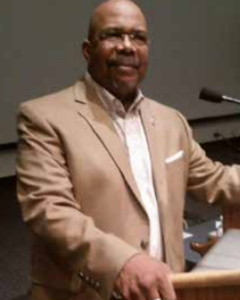 Bobby
Bobby
59 Years Old, In-Center Hemodialysis, Transplant
CKD saved my life. I had a rough past history of abusing drugs and alcohol with consistent high blood pressure. In 2002, I came home from a night of partying and fell through a glass coffee table. I was rushed to the ER where I was a told that I would have to start dialysis immediately. I didn’t even know what dialysis was.
I will never forget my first dialysis treatment. I knew my life was about to change. I asked my APN how I could help others that were in my situation because I never wanted anyone to feel like I had felt. I started educating myself on CKD while getting sober. I continued to work but only part time which I recommend to anyone that can still work. It helped keep my mind on anything besides dialysis. Once I was clean and sober, I was able to get on the transplant list. I also started volunteering with our local organ procurement organization (OPO), Network 13 and National Kidney Foundation. I received the call to get my kidney on January 24, 2005, another day I will never forget.
I look at my new kidney as a gift which I will protect for as long as I can. I wrote a letter to my donor family through my organ procurement organization with the hope to meet them someday. About 6 months later, they responded and we arranged to meet. Before CKD, I was an only child, now I have three sisters, another mom, three children and the grandchildren just keep adding up.
The lowest point in my life led me to one of the most amazing experiences I’ve ever known. That is what I meant when I said that CKD saved my life. Today I manage a kidney and cancer home and I’m still volunteering part time with my OPO. I’m living proof that there is always hope even if you can’t see any hope.
